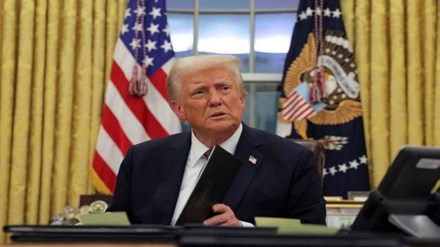Global shares and US Treasuries experienced volatility on Tuesday, while the dollar rebounded following Donald Trump’s unexpected tariff announcement. Trump’s administration is considering imposing 25 per cent tariffs on imports from Canada and Mexico by February 1, a move that took investors by surprise as earlier signals pointed to a more measured approach.
Investor and Analyst Reactions
Shoki Omori, Chief Global Desk Strategist, Mizuho Securities, Tokyo
Omori noted that the proposed 25 per cent tariff was unexpectedly high, leading to immediate market reactions, particularly in the foreign exchange sector. He highlighted that market participants initially expected Trump to target China with more gradual tariff increases. Despite the initial reaction, Omori predicted that the US dollar to Chinese yuan (USDCNH) exchange rate would stabilise as the market adjusts.
Charu Chanana, Chief Investment Strategist, Saxo, Singapore
Chanana emphasized that Trump’s early presidency has already introduced significant market uncertainty. She pointed out that markets had initially reacted positively to the absence of tariff threats in Trump’s inaugural speech. However, the announcement of tariffs on Canada and Mexico reaffirmed the risks, even as the lack of mention of China leaves room for potential negotiations.
Boris Kovacevic, Global Macro Strategist, Convera, Vienna
Kovacevic warned that sudden policy changes and increased volatility could become the new normal under Trump’s administration. He noted that Europe is particularly vulnerable, facing economic pressures from both the U.S. and China amid domestic political uncertainty.
Market Response to Tariff Delay
Rick Meckler, Partner, Cherry Lane Investments, New Vernon, New Jersey
Meckler observed that the delay in tariff implementation provided some relief to the markets. He believes that the decision to study and negotiate tariffs rather than implementing them immediately is encouraging, suggesting that market disruption might be less severe than initially feared.
Eugene Epstein, Head of Trading and Structured Products, North America, Moneycorp, New Jersey
Epstein pointed out that Trump’s tariff strategy remains consistent with his previous term, using them as a negotiating tool. He urged caution, noting that the lack of immediate action does not imply that tariffs won’t be imposed in the future.
Potential Inflation Concerns
Zachary Griffiths, Senior Investment Grade Strategist, CreditSights, Charlotte, North Carolina
Griffiths expressed skepticism about the market’s optimistic reaction to the tariff delay. He warned that a gradual rollout of high tariffs could still pose inflationary risks, potentially leading to tighter monetary policy from the Federal Reserve.
Sector-Specific Impacts
Nigel Green, CEO, deVere Group
Green highlighted the energy sector as a potential beneficiary of Trump’s policies. He expects deregulation and increased domestic production to drive growth in oil and gas companies, leading to higher profitability and stock gains.
Marc Chandler, Chief Market Strategist, Bannockburn Global Forex, New York
Chandler questioned Trump’s revenue projections from tariffs, arguing that the figures cited are unrealistic given the scale of U.S. imports. He stressed that whether tariffs are imposed immediately or later, their economic impact would remain substantial.
While markets initially reacted positively to the delay in tariff implementation, analysts caution that further announcements could increase volatility and inflation concerns. Investors are advised to remain cautious and prepare for potential shifts in U.S. trade policy.
(With Reuters inputs)
